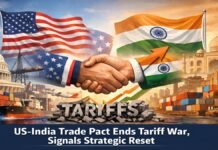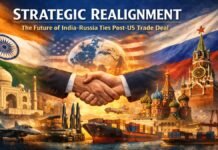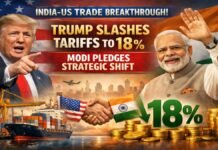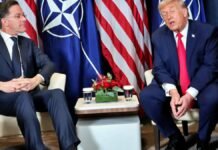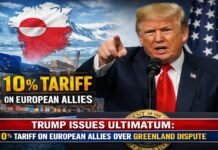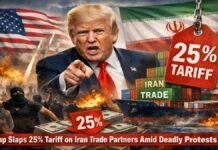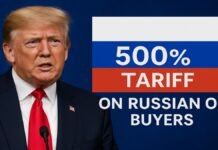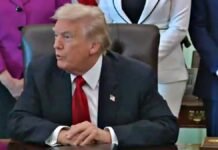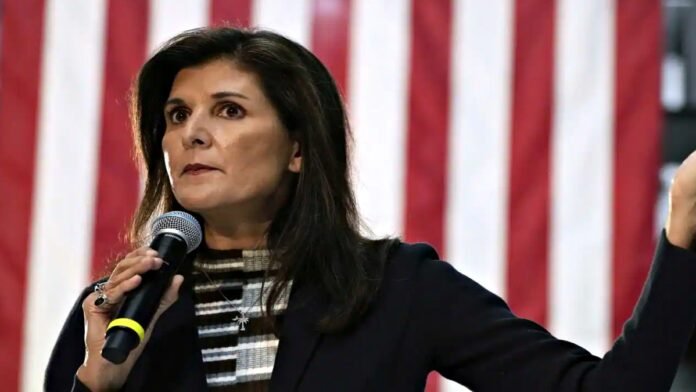
Key Points
- India–US tensions deepen over Russian oil imports and dual tariffs.
- Trump administration imposes retaliatory duties, raising tariffs on Indian exports by up to 50%.
- Nikki Haley urges India to take Trump’s concerns seriously, citing shared goals against China.
- India hits back, calling US tariffs “unreasonable and unwise.”
- PM Modi stands firm, prioritizing interests of farmers and fishermen over US pressure.
- Strategic partnership between the two democracies faces its toughest test in decades.
New Delhi: India’s trade relationship with the United States has entered a difficult phase, with tensions flaring over tariffs and Russian oil imports. The Trump administration has imposed dual tariffs on Indian goods, a move that has raised duties on Indian exports by up to 50%. This marks one of the harshest trade actions against India in recent years.
The decision followed Washington’s repeated warnings to New Delhi about continuing crude oil imports from Russia, despite Western sanctions and mounting global pressure.
The strain has also been aggravated by India’s earlier rejection of Trump’s proposal to mediate between New Delhi and Islamabad in their dispute over Kashmir an offer that India dismissed as an “internal matter issue.”
Nikki Haley’s Caution to India
Amidst this turmoil, Nikki Haley, former US Ambassador to the United Nations in the Trump administration, has publicly urged India to take Trump’s concerns more seriously.
In a post on X (formerly Twitter), she wrote:
“India should take Trump’s point on Russian oil seriously and work with the White House to find a solution. The sooner the better. The decades-old friendship and goodwill between the world’s two largest democracies provide a solid foundation to overcome the current turmoil.”
Haley further emphasized that tough negotiations are part of diplomacy, but both sides must keep focus on shared strategic goals. Highlighting China’s growing influence, she warned:
“To face China, America must have a friend in the form of India.”
Her comments are being seen as a signal from Washington insiders that strategic ties remain more important than trade disputes—but only if oil tensions are resolved.
India’s Strong Counter
India has not taken the US move lightly. In a strong response, New Delhi criticized the trade tariffs, describing them as “unreasonable and unwise.”
Prime Minister Narendra Modi, addressing the concerns of farmers and fishermen affected by US tariffs, stated firmly:
“I know I will have to pay a price for this, but I am ready to do this for the farmers.”
This reflects India’s consistent policy of strategic autonomy balancing relations with both Washington and Moscow, while safeguarding domestic interests.
What Lies Ahead for India–US Relations?
The strain has injected uncertainty into what has traditionally been a robust Indo-US partnership spanning trade, defence, and technology.
- The US wants India to reduce its energy dependence on Russia, especially amid the Ukraine conflict.
- India insists its energy policy is driven by national interests and will not compromise food security or farmer welfare.
- Both sides, however, acknowledge that their shared security concerns particularly about China require cooperation.
Analysts suggest that backchannel talks may already be underway, as neither India nor the US wants the strategic partnership to collapse.



































